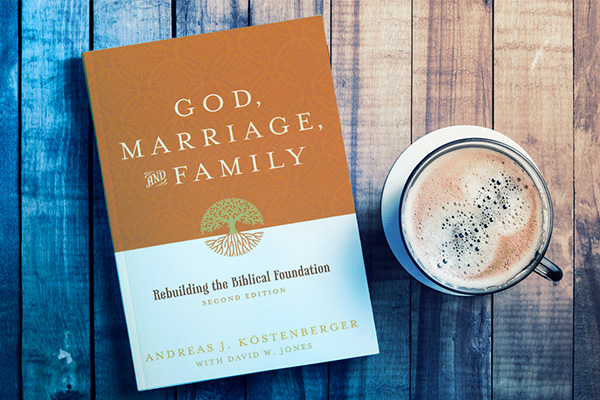KSh 100.00 Original price was: KSh 100.00.KSh 50.00Current price is: KSh 50.00.
God, Marriage, and Family by Andreas Köstenberger
God, Marriage, and Family by Andreas Köstenberger is a comprehensive biblical theology of family and sex, emphasizing a complementarian vision of marriage, manhood, and womanhood. The book addresses Old and New Testament teachings on marriage and family, special family-related issues, and offers a biblical defense of heterosexual monogamy. The second edition includes updates on physical discipline, singleness, homosexuality, and divorce, and new sections on the theology of sex and parenting teenagers. Despite minor controversies and critiques, the book remains a valuable resource for its thorough scriptural exposition and practical insights into Christian family life.
Share :
- Author
- Category
- Product SKU
- admin
- : Marriage and Family
When the second edition of God, Marriage, and Family was released in 2010, a significant amount of attention and critique was directed towards a new chapter on family-based ministry. This focus overshadowed the book’s main contributions, despite the topic only taking up about nine pages of the 399-page volume. Regardless of individual views on family ministry, God, Marriage, and Family remains the best biblical theology of family and sex available. This book, both in its first and second editions, is a go-to resource for understanding the Bible’s stance on various controversial family and gender issues. Anything Andreas Köstenberger writes is worth noting, but God, Marriage, and Family might be his most significant work.
The book is divided into thirteen chapters and an appendix. The initial chapters establish a biblical-theological foundation for understanding marriage, starting with a discussion on the “Current Cultural Crisis” and summarizing Old and New Testament teachings on marriage. One chapter explores marriage as a covenant, including new material on the conjugal act’s meaning within marriage. Subsequent chapters address Old and New Testament teachings on family, special family-related issues, and a brief theology of singleness. The book also tackles the ethics of homosexuality, providing a biblical defense of heterosexual monogamy, and interprets biblical texts on divorce and remarriage. Further chapters discuss qualifications for church leadership, focusing on marital faithfulness, and the relationship between family and the local church, critically examining the “family-integrated church approach.”
God, Marriage, and Family offers a countercultural, complementarian vision of marriage, manhood, and womanhood, depicting the husband’s role as a leader, provider, and protector, and the wife’s role in submission and as a helpmeet. This vision extends to child-rearing, raising boys to embrace their roles as leaders and girls to be helpmeets. Köstenberger’s stance challenges the modern egalitarian perspective but remains biblically faithful.
The second edition includes updates on physical discipline, singleness, homosexuality, and divorce and remarriage, with a new section on the theology of sex and parenting teenagers. The chapter on divorce and remarriage is streamlined, moving technical details to an appendix. Köstenberger and Jones also incorporate recent relevant works into their discussions.
Noteworthy is the section on the theology of sex, which outlines the biblical purposes for sex—procreation, companionship, public good, and pleasure—and evaluates activities against these purposes. This method allows the authors to address activities not explicitly mentioned in the Bible, ruling out pornography and masturbation based on their conformity to God’s purposes for sex.
The book also revisits the topic of corporal punishment, critiquing William Webb’s arguments against it. Köstenberger and Jones highlight fallacies in Webb’s reasoning, maintaining that corrective physical discipline is supported by a biblical theology.
Despite minor disagreements, the book’s comprehensive connection to Scripture and its consolidation of essential material make it invaluable. John Piper praised its scriptural exposition, and it is considered a vital resource for pastors and anyone seeking biblical wisdom on marriage and family.



Reviews
There are no reviews yet.